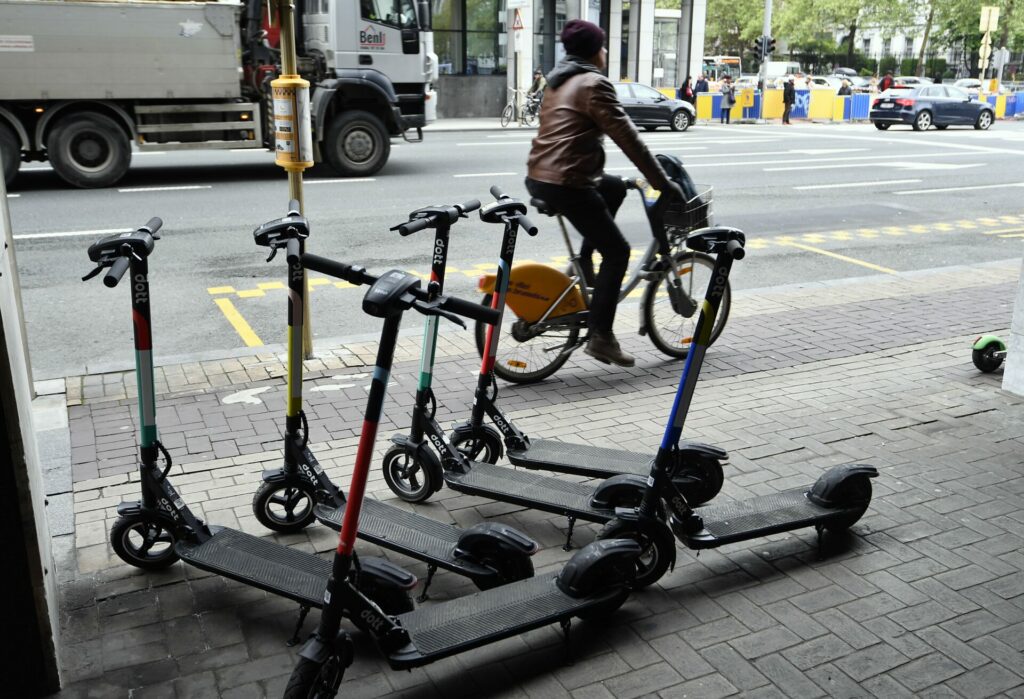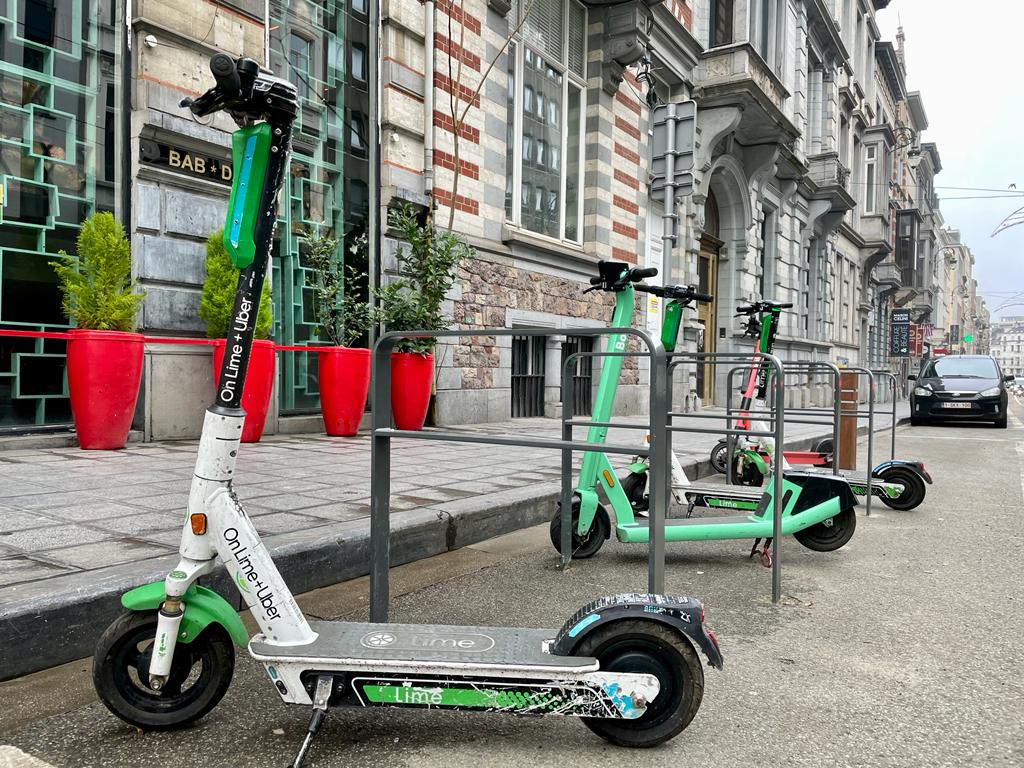How are shared mobility providers hoping to improve the streets of Brussels?
✔ E-scooter parking violations in Brussels dropped 63% between December 2024 and January 2025
✔ Users must photograph parked scooters to confirm proper placement or face fines
✔ Dott and Bolt employees are actively manage parking issues in Brussels' busiest areas
'No miracle solution' to e-scooter nuisance in Brussels

Shared mobility vehicles have long been a source of frustration for many Brussels residents. Two key operators in the region are now joining forces to reduce the inconvenience caused by their e-bikes and e-scooters, but warn that there is "no miracle solution."
Shortly after e-scooters and e-bikes came to Brussels, the region's streets and squares saw a blight of shared mobility vehicles strewn across pavements, reducing road safety. Regional authorities, therefore, implemented strict measures in 2022.
When these failed to bear fruit, Brussels decided to prohibit users from parking their vehicles randomly after their journey; instead, they must be left in so-called 'drop zones'. It also announced it would dramatically slash the number of vehicles from 21,000 to 8,000.
Bolt and Dott were chosen as the only two providers in 2023. They can operate a maximum of 4,000 e-scooters each. However, a Brussels court gave Lime the green light to continue offering their e-scooters until July 2025, putting a spanner in the works for the region. Brussels Mobility said 9,600 such vehicles remain active in Brussels – 1,600 more than originally intended.
Despite this increased figure, "the situation regarding the nuisance caused by these vehicles is improving every month," Brussels Mobility spokesperson Inge Paemen told The Brussels Times.
The number of improperly parked e-scooters dropped by 63% between December 2024 and the end of January 2025. Over six months, the share of correctly parked vehicles in designated drop zones increased by 10 percentage points.
"We are of course pleased with this development, but there is always room for improvement," Paemen said.
Sharing space
The situation remains far from perfect. Cyclists have complained that the bicycle racks (used to safely lock a bike) are recognised by some municipalities as parking spaces for shared e-scooters and e-bikes, even though these vehicles don't need to be secured. This often forces people with their own two-wheelers to tie them to a street post, obstructing pedestrians.
Amandine Mauvais, spokesperson for Dott, confirmed that it is not always clear for both cyclists and shared mobility users to know whether the space can be shared. "Sometimes cyclists may even think that 'their' bicycle racks are being invaded by scooters," she told The Brussels Times. "Especially in busy areas, it is therefore important to have enough space for private and shared bicycles and scooters."
Paemen said sharing this space is not the intention. "But our main concern at the moment is ensuring shared vehicles do not obstruct pedestrians."

Illustration image of e-scooters parked by cycling racks. Credit: Helen Lyons / The Brussels Times
In some of Brussels' busiest areas, shared e-bikes and e-scooters spill over onto cycling paths, the road, and most often, the pavement and public squares.
"We are aware of this problem, but there is no miracle solution," Paemen added. "We are monitoring the situation, reviewing every request for additional drop-off zones, and slowly but surely things are improving."
Fines and checks
Mauvais echoed that Lime's continued operations in the region are causing many of the issues. "The maximum number of operators had been set according to the limitations in the dropzones available in Brussels," she said. "Today, these parking spaces are insufficient."
Dott has therefore teamed up with Bolt to better integrate their scooters into public spaces by improving the parking of shared scooters and e-bikes in the capital. Upon registration, users will receive special training on how to park vehicles, supplemented by regular awareness campaigns.
A control mechanism has also been introduced: at the end of each trip, users must take a photo to prove that their vehicle has been parked correctly. "Failure to comply with the parking regulations results in a financial penalty of €10 [for Dott]," Mauvais said. The municipal services can also hand out a €125 fine to operators whose vehicles are parked incorrectly. This can be passed on to the users.
Related News
- Sharing platform Bolt launches premium Tesla taxis in Brussels
- EU urged to set 20 km/h speed limit for all e-scooters
Bolt has introduced a Dropzone Capacity Check which directs users to available zones to prevent them from parking in crowded areas. Finally, Dott employees will monitor the parking situation of e-bikes and scooters. Where needed, they will move poorly parked vehicles and better manage overcrowded parking spaces five days a week in the busiest areas.
The companies stressed that the benefits of such measures would be even more significant "if all regulations, including limits on the number of operators and scooters, were fully enforced." Paemen concluded that these legal restrictions should come into effect as soon as the pending Lime licence expires.
